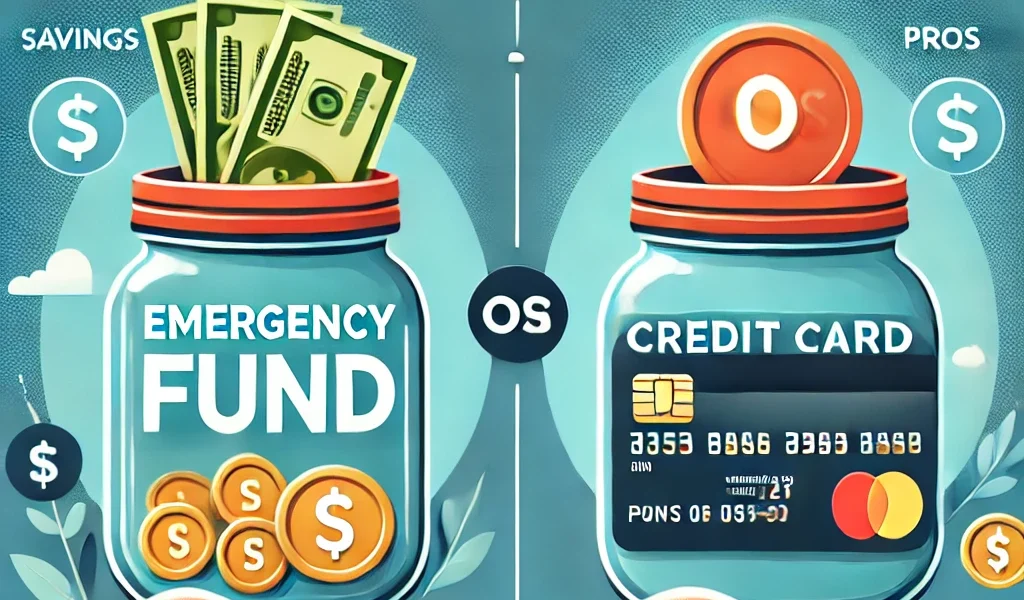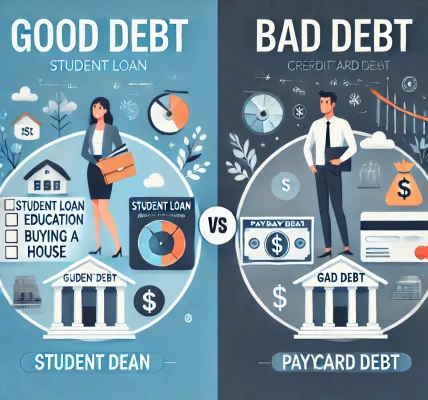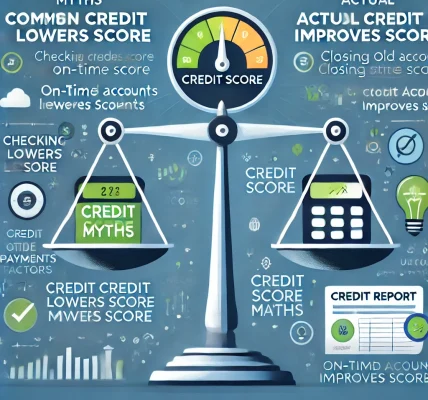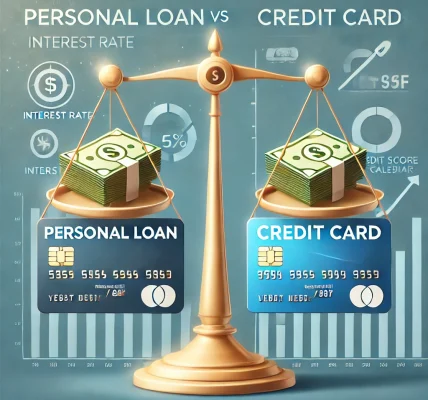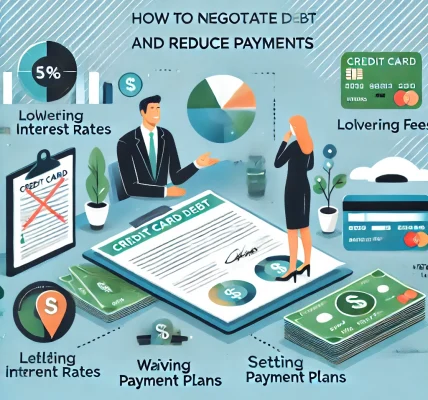Introduction
When financial emergencies arise, many people face a crucial decision: should they use their credit card or dip into their emergency fund? Both options have their advantages and drawbacks, but making the right choice can significantly impact your financial stability and future. In this guide, we’ll break down the pros and cons of each approach and provide practical advice on how to prepare for unexpected expenses without falling into debt traps.
Understanding Emergency Funds
An emergency fund is a dedicated savings account that covers unexpected financial situations such as medical bills, car repairs, job loss, or urgent home maintenance. Financial experts recommend having at least three to six months’ worth of living expenses saved in an easily accessible account.
Benefits of an Emergency Fund
- Avoids Debt Accumulation – Since you are using your own money, you don’t have to worry about high-interest debt piling up.
- Financial Security – Having a safety net reduces stress and helps you make sound financial decisions without pressure.
- No Interest Costs – Unlike credit cards, using an emergency fund doesn’t come with interest payments.
- Preserves Credit Score – Since there’s no borrowing involved, your credit utilization ratio remains unaffected.
Downsides of an Emergency Fund
- Limited Availability – If you haven’t saved enough, you may struggle to cover large expenses.
- Reduced Investment Growth – Keeping money in a low-interest savings account means you may miss out on higher returns from investments.
- Temptation to Use Funds for Non-Emergencies – Some people may misuse their emergency savings for non-essential expenses.
Understanding Credit Cards for Emergencies
A credit card can serve as a financial backup when you lack immediate cash. Many people rely on credit cards to handle unexpected expenses due to their convenience and accessibility.
Benefits of Using a Credit Card in Emergencies
- Instant Access to Funds – You don’t need to wait; a credit card provides immediate access to credit.
- Reward Points & Perks – Many credit cards offer cashback, reward points, or travel benefits for spending.
- Builds Credit History – Responsible use of credit can help improve your credit score over time.
- Fraud Protection – Credit cards offer better security against fraudulent transactions compared to debit cards.
Downsides of Using a Credit Card
- High-Interest Rates – If you don’t pay off the balance quickly, interest charges can make the debt much more expensive.
- Potential Debt Cycle – Relying too much on credit can lead to a cycle of debt that’s hard to break.
- Credit Score Impact – High credit utilization and missed payments can damage your credit score.
When Should You Use an Emergency Fund vs. a Credit Card?
When to Use an Emergency Fund
- Job Loss: If your income is affected, rely on your savings instead of adding to your debt.
- Medical Emergencies: If you have hospital bills, use your emergency fund to avoid high credit card interest.
- Car Repairs: Paying upfront from your fund can save you from debt accumulation.
- Home Repairs: Essential maintenance like fixing a leaking roof should come from your emergency savings if possible.
When to Use a Credit Card
- Temporary Cash Flow Issue: If you can pay off the balance within the grace period, a credit card can be useful.
- Travel Emergencies: If you’re in a situation where cash isn’t available, a credit card can be a good backup.
- Large Expenses That Earn Rewards: If you get cashback or travel points and can pay off the balance quickly, it might make sense to use a credit card.
Building a Strong Financial Safety Net
To ensure you don’t have to rely solely on credit cards during emergencies, here are a few tips:
- Start Small and Grow – Even saving $500-$1,000 can prevent you from depending on credit for minor emergencies.
- Automate Savings – Set up automatic transfers to your emergency fund to ensure consistency.
- Reduce Unnecessary Expenses – Cutting down on non-essential spending can help you build savings faster.
- Have Multiple Income Streams – Side gigs or passive income can add financial security.
- Keep Your Credit Card for True Emergencies – Avoid using it for impulse purchases to maintain financial discipline.
Conclusion
Both an emergency fund and a credit card have their place in financial planning. While an emergency fund is the ideal first line of defense, a credit card can be a useful backup in certain situations. The key is to use each wisely and plan ahead to avoid financial hardship. By prioritizing savings and responsible credit management, you can navigate financial surprises with confidence and security.
